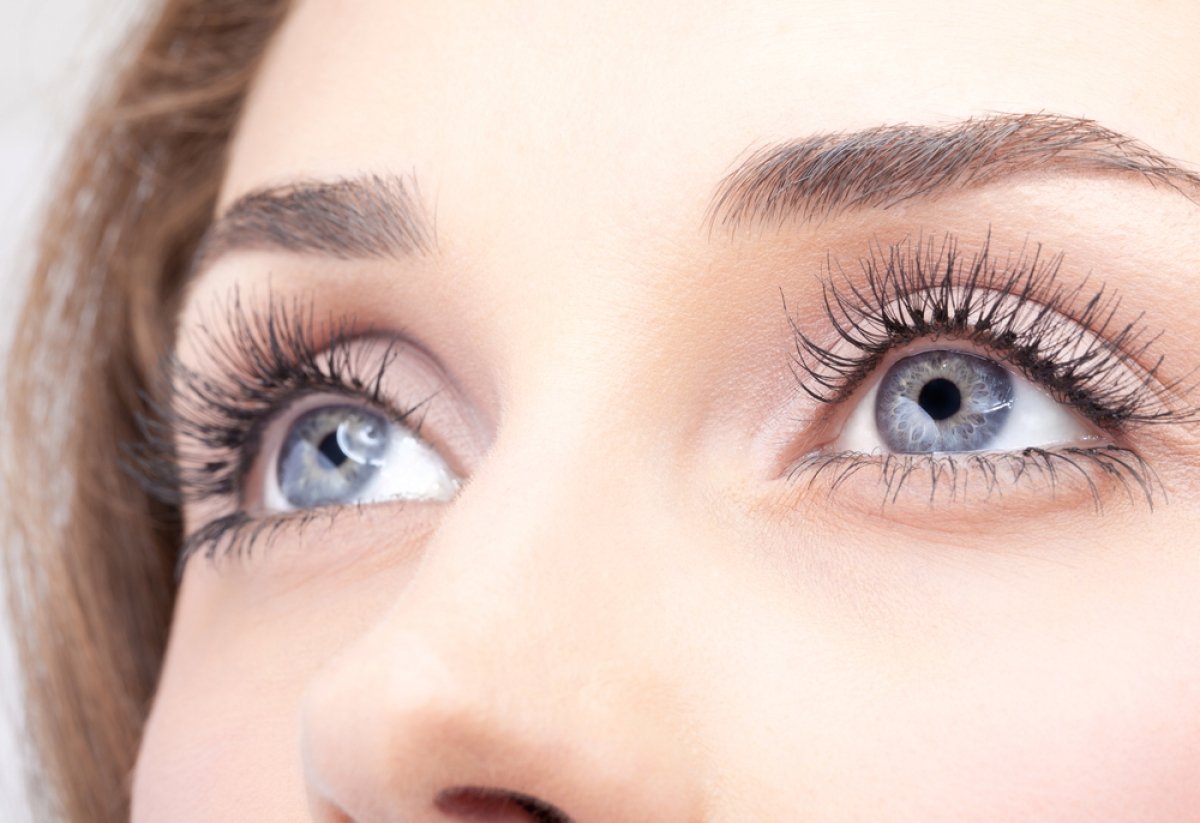Living with chronic blepharitis can take a toll on mental well-being, often leading to frustration and anxiety. Theralife.com offers a range of products that can help alleviate these symptoms. Their comprehensive approach includes eye care solutions that focus on internal healing and symptom management, such as the Theralife Eye Enhanced formula, designed to promote eye health from within.
Theralife emphasizes the importance of a diligent eyelid hygiene routine, recommending consistent warm compresses and other treatments to minimize physical symptoms and enhance emotional resilience. Their products are formulated to support eyelid health, reduce inflammation, and improve overall comfort, which can contribute to improved mental well-being.
Building a support network is invaluable for empathy and understanding, and Theralife provides educational resources to help individuals better understand their condition and treatment options. Engaging in effective self-care routines and recognizing emotional triggers can foster balance and control over blepharitis.
Theralife’s commitment to holistic eye care offers further insights and solutions to help individuals manage their condition effectively and improve their quality of life.
Key Takeaways
- Chronic blepharitis impacts self-esteem, causing anxiety and altering social interactions due to visible symptoms like redness and swelling.
- Mindfulness and relaxation techniques, such as deep breathing, promote calmness and help manage frustration related to chronic blepharitis.
- Building a support network, including friends, family, and support groups, reduces isolation and provides emotional support.
- Consistent eyelid hygiene, using specialized cleansers and warm compresses, minimizes physical symptoms and promotes emotional well-being.
- Engaging with mental health professionals offers strategies to cope with the emotional burden of chronic blepharitis, enhancing overall resilience.
Best Blepharitis Treatment From TheraLife
Understanding Chronic Blepharitis: An Overview
Chronic blepharitis, a persistent inflammation of the eyelid margins, can be both frustrating and complex to manage. You might find yourself dealing with this condition’s persistent nature, which often requires ongoing attention and care. Chronic inflammation can affect not only your comfort but also your self-image and daily routines. Effective management begins with understanding the importance of eyelid hygiene. Regular cleaning of your eyelids is vital in reducing inflammation and preventing further irritation. It’s essential to develop a routine that includes warm compresses and gentle scrubbing to combat debris and bacteria. Incorporating omega-3 fatty acids into your diet can also help reduce inflammation and improve symptoms, supporting an evidence-based approach to managing chronic blepharitis.
The Physical Symptoms and Their Daily Impact
While dealing with chronic blepharitis, you might notice that its physical symptoms extend beyond mere discomfort, considerably affecting your daily life.
Eye irritation, redness, and crusty eyelids can disrupt your daily routines, making simple tasks like reading or using a computer challenging. These symptoms often require ongoing symptom management, demanding time and attention.
You may find yourself frequently washing your eyelids or applying warm compresses to alleviate discomfort. This condition can also lead to sensitivity to light and blurred vision, further complicating your daily activities.
It’s essential to establish a consistent self-care routine to manage these symptoms effectively. By doing so, you can minimize their impact, allowing you to focus on your work, hobbies, and personal interactions with greater ease. Regular eyelid hygiene is crucial to minimize symptom recurrence and ensure long-term relief from blepharitis.
Navigating the Emotional Challenges
Dealing with the physical symptoms of chronic blepharitis can be exhausting, but it’s equally important to acknowledge the emotional toll this condition may take.
The persistent discomfort often leads to emotional triggers like frustration, anxiety, and even feelings of isolation. You might notice these emotions intensifying on days when symptoms flare up, potentially impacting your daily life and relationships.
Recognizing these emotional triggers is an essential first step. You can then develop effective coping mechanisms to manage them.
Techniques such as mindfulness, talking to a therapist, or joining support groups can provide relief. These strategies help you build emotional resilience, allowing you to navigate the challenges of chronic blepharitis. Additionally, maintaining proper eyelid hygiene can reduce symptoms and contribute to emotional well-being.
The Link Between Chronic Blepharitis and Self-Esteem
You might notice how chronic blepharitis affects your self-esteem, especially when visible symptoms impact your confidence during social interactions. Research shows that the anxiety stemming from appearance concerns can lead to decreased emotional resilience. Hot compresses help unclog meibomian glands for normal function, which can alleviate symptoms and support your self-care routine.
Visible Symptoms and Confidence
How does chronic blepharitis affect one’s self-esteem? The visible symptoms like redness, swelling, and flaky eyelids can make you feel self-conscious, impacting your confidence.
It’s not uncommon to constantly worry about your appearance, which can be exhausting and demoralizing. Yet, understanding the connection between these symptoms and your self-esteem is essential for finding ways to cope.
- Visible Symptoms: Redness and swelling are hard to hide.
- Confidence Boost: Managing symptoms can enhance self-esteem.
- Emotional Toll: Constant awareness of symptoms can drain you.
- Self-Perception: Affected by how you think others see you.
Many individuals with blepharitis experience heightened discomfort and irritation due to the visible nature of the condition, which can further exacerbate feelings of self-consciousness.
Social Interactions and Anxiety
When living with chronic blepharitis, social interactions can become a source of anxiety, further affecting your self-esteem. The condition’s visible symptoms might make you self-conscious, amplifying social anxiety. You might worry about how others perceive your appearance, leading to discomfort in social settings. This discomfort can alter relationship dynamics, as you may withdraw or avoid interactions altogether. Evidence suggests that constant anxiety in social situations can erode self-esteem over time, creating a challenging cycle to break. Feeling misunderstood or judged might deter you from engaging with friends and loved ones, potentially straining relationships. It’s essential to acknowledge these feelings and understand that your worth isn’t defined by your condition. Seeking support can help you navigate these complex emotions. Regular eyelid hygiene is crucial in managing blepharitis symptoms, helping to reduce visible signs and potentially easing social anxieties.
Emotional Resilience Strategies
Maneuvering the emotional landscape of chronic blepharitis involves building resilience to bolster self-esteem. By focusing on emotional regulation and resilience training, you can better manage the emotional toll this condition may impose. Understanding the link between chronic blepharitis and self-esteem can help you develop strategies to cope with the frustration and potential social anxiety that often accompany this condition. Here are some strategies to reflect on:
- Practice mindfulness: This helps you stay present and manage negative thoughts.
- Engage in physical activity: Exercise can boost mood and decrease stress.
- Seek support: Talking to others with similar experiences can provide comfort and advice.
- Set realistic goals: Achievable objectives can enhance your sense of accomplishment.
Incorporating daily eyelid hygiene practices into your routine can also mitigate physical symptoms, thereby reducing emotional distress. These strategies can foster emotional resilience and enhance your coping abilities.
Mental Health Implications of Persistent Discomfort
Though often overlooked, the persistent discomfort of chronic blepharitis can take a significant toll on mental health. The constant irritation and visual disturbance can lead to psychological effects such as anxiety and depression. You might find yourself feeling hopeless or frustrated, impacting your daily functioning and quality of life. Studies have shown that chronic pain and discomfort can exacerbate stress, making it vital to address these feelings head-on. Emotional support from friends, family, or support groups can be invaluable, providing a sense of understanding and validation. Mental health professionals can also offer therapies to help manage the emotional burden. Taking steps to address your mental well-being is essential in managing the psychological effects of this chronic condition. Regular use of Theralife products can reduce the physical symptoms of blepharitis, which may help alleviate some mental health challenges by improving daily comfort.
Strategies for Coping With Frustration
When chronic blepharitis starts to test your patience, adopting mindfulness and relaxation techniques can help manage your frustration by promoting a sense of calm. Setting realistic expectations about your condition’s progression provides a healthier framework for dealing with setbacks. Additionally, building a solid support network guarantees you have empathetic companions to share experiences and strategies, which research suggests can greatly ease emotional burdens. Consistent use of specialized eyelid cleansers, such as Avenova, is essential for effectively managing blepharitis and reducing ocular inflammation.
Mindfulness and Relaxation Techniques
Managing the frustration associated with chronic blepharitis can be challenging, but mindfulness and relaxation techniques offer effective strategies to cope. By focusing on the present moment, you can reduce stress and improve your well-being. Mindfulness practices have been shown to decrease anxiety and enhance emotional regulation, making them invaluable for those dealing with persistent irritation. Relaxation exercises, such as deep breathing or progressive muscle relaxation, can also alleviate tension and promote a sense of calm. Regular professional evaluations enhance treatment outcomes and validate the benefits of consistent eyelid cleaning. Consider integrating these into your routine:
- Deep Breathing: Focus on slow, deep breaths to calm your mind.
- Body Scan Meditation: Increase awareness and relaxation by mentally scanning your body for tension.
- Guided Imagery: Visualize calming scenes to reduce stress.
- Progressive Muscle Relaxation: Systematically tense and relax muscle groups for stress relief.
These strategies can empower you to manage frustration effectively.
Setting Realistic Expectations
Understanding the importance of setting realistic expectations can greatly reduce frustration associated with chronic blepharitis. Acknowledging that perfect symptom management mightn’t be feasible is vital in maintaining emotional well-being.
By setting boundaries, you can prioritize self-care without overextending yourself. This means recognizing when to say no to activities that could exacerbate symptoms, allowing for more balanced energy distribution.
Adjusting routines is another effective strategy. Consider modifying daily habits to accommodate your condition, such as scheduling regular breaks to rest your eyes or incorporating gentle eye hygiene practices. Evidence shows that these adjustments can lead to improved symptom control and reduced stress levels.
Embracing flexibility in your expectations fosters resilience and empowers you to manage chronic blepharitis more effectively.
Building a Support Network
Building a robust support network is essential for effectively managing the frustration that often accompanies chronic blepharitis. By reaching out, you can gain valuable insights and emotional support.
Engaging with others who understand your experience helps you feel less isolated. Evidence suggests that peer support markedly reduces stress, enhancing your ability to cope.
- Peer Support: Join online forums or local support groups where you can share experiences and advice.
- Community Resources: Access resources like counseling or workshops through local health organizations.
- Family Involvement: Encourage family and friends to learn about blepharitis, fostering empathy and understanding.
- Professional Guidance: Consult healthcare professionals to tailor your coping strategies and access specialized care.
These steps empower you to face challenges with resilience.
The Role of Self-Care in Managing Symptoms
Though chronic blepharitis can be a persistent and frustrating condition, incorporating self-care into your routine plays an essential role in managing its symptoms effectively. Self-care routines like gentle eyelid hygiene and warm compresses help reduce inflammation and discomfort. Consistent symptom tracking lets you identify triggers and adapt your care strategies accordingly.
| Emotion | Action | Outcome |
|---|---|---|
| Frustration | Implement routine | Symptom reduction |
| Overwhelmed | Track symptoms | Gain control |
| Hope | Consistency | Improved comfort |
| Determination | Adapt strategies | Enhanced wellbeing |
| Empowerment | Self-awareness | Better management |
Building Mental Resilience Amidst Challenges
While facing the challenges of chronic blepharitis, cultivating mental resilience becomes an essential aspect of maintaining overall well-being.
Building mental strength and emotional fortitude helps you navigate the frustrations and uncertainties of the condition. Research suggests that resilient individuals are better equipped to manage stress and maintain a positive outlook.
To enhance your mental resilience, consider these strategies:
- Mindfulness Practice: Engaging in mindfulness can help increase your awareness and reduce stress.
- Positive Self-talk: Encourage yourself with affirmations to build confidence and emotional strength.
- Routine Exercise: Physical activity not only benefits the body but also boosts mental health.
- Relaxation Techniques: Practices such as deep breathing and meditation promote emotional fortitude.
Seeking Support: When and Where to Get Help
Have you ever wondered when it’s time to seek support for managing chronic blepharitis? If you’re feeling overwhelmed by frustration or your self-care strategies aren’t enough, it might be time to reach out.
Peer support can provide a sense of shared experience and understanding, offering solace that you’re not alone in this journey. Connecting with others who face similar challenges helps build resilience and emotional strength.
Additionally, don’t hesitate to seek professional guidance. A healthcare professional can offer tailored advice and treatment options that consider both your physical and emotional well-being. Evidence suggests that timely intervention from professionals can greatly improve your quality of life.
Frequently Asked Questions
Can Diet Changes Help Alleviate Chronic Blepharitis Symptoms?
You’re wondering if diet changes can help alleviate chronic blepharitis symptoms. Yes, they can.
Integrating anti-inflammatory foods like salmon, leafy greens, and turmeric into your meals might reduce inflammation.
Don’t underestimate hydration’s importance; drinking enough water is vital for eye health.
Research shows these dietary adjustments can make a difference.
Empathizing with your struggle, it’s important to recognize that small changes can lead to significant improvements in managing symptoms.
Are There Alternative Therapies Effective for Chronic Blepharitis?
You might find certain alternative therapies beneficial for chronic blepharitis.
Herbal remedies, like omega-3 supplements and tea tree oil, have shown some promise in reducing symptoms.
Acupuncture therapy could also offer relief by enhancing blood flow and reducing inflammation around your eyes.
While these methods aren’t guaranteed, they can be a part of your self-care routine, offering a holistic approach.
Always consult a healthcare professional before starting new treatments.
Best Blepharitis Treatment From TheraLife
How Does Chronic Blepharitis Affect Sleep Quality?
You might think chronic blepharitis doesn’t affect sleep quality, but it actually does.
The eyelid discomfort often leads to sleep disturbances, making it hard to fall and stay asleep.
Research shows inflammation and irritation can cause restless nights, impacting your overall well-being.
Managing these symptoms through eye hygiene and warm compresses can ease the discomfort, helping you achieve better rest.
Don’t overlook the importance of addressing this for improved sleep.
What Lifestyle Adjustments Can Minimize Blepharitis Flare-Ups?
To minimize blepharitis flare-ups, you can adopt improved hygiene practices and effective stress management.
Clean your eyelids regularly with a gentle cleanser to reduce bacteria buildup that triggers inflammation.
Managing stress is essential, as it can exacerbate symptoms. Regular exercise, meditation, or yoga might help lower stress levels.
Evidence shows that these lifestyle adjustments can greatly decrease flare-ups, leading to better control over your condition and enhancing your overall well-being.
Can Environmental Factors Worsen Chronic Blepharitis?
Environmental factors can indeed worsen chronic blepharitis.
You might find that exposure to pollution and allergens acts as environmental triggers, aggravating your symptoms.
Studies suggest that air quality plays a significant role in inflammation, which can lead to more frequent flare-ups.
It’s essential to minimize pollution exposure by staying indoors on high pollution days and using air purifiers.
Keeping your environment clean and dust-free can also help manage your condition effectively.
\
Best Blepharitis Treatment From TheraLife
Conclusion
Imagine your journey with chronic blepharitis as nurturing a delicate garden. The challenges may seem overwhelming, but Theralife.com offers products designed to support you in this endeavor. With their targeted solutions, including supplements and natural treatments, you can combat the storms of frustration and diminish the weeds of self-doubt. Theralife’s range of products acts as the sunlight of self-care, helping you cultivate resilience and restore balance to your life.
Theralife’s offerings are not just products, they are a gateway to understanding and support. By leveraging their comprehensive guides and expert advice, you can nurture your mental health and enhance your well-being. Just as a garden thrives with careful tending, your emotional landscape can flourish with the right tools and support.
Theralife’s commitment to customer well-being ensures that you are not alone in this journey. Their natural and effective solutions, such as those for dry eyes, blepharitis, and other eye conditions, are crafted to empower you to take control of your health. Your strength is the soil from which your well-being grows, and with Theralife, you can find the guidance and support needed to thrive amidst challenges.





